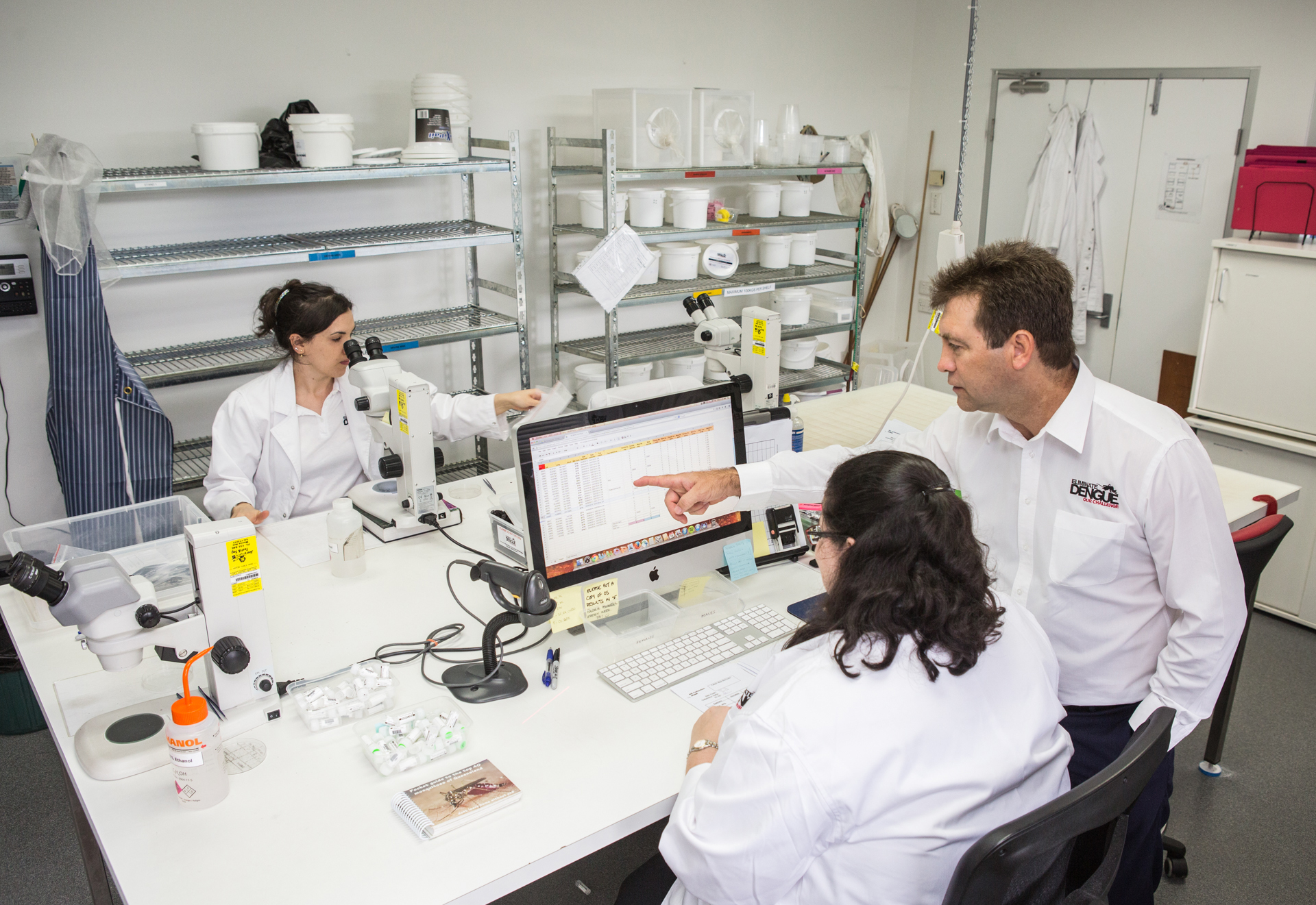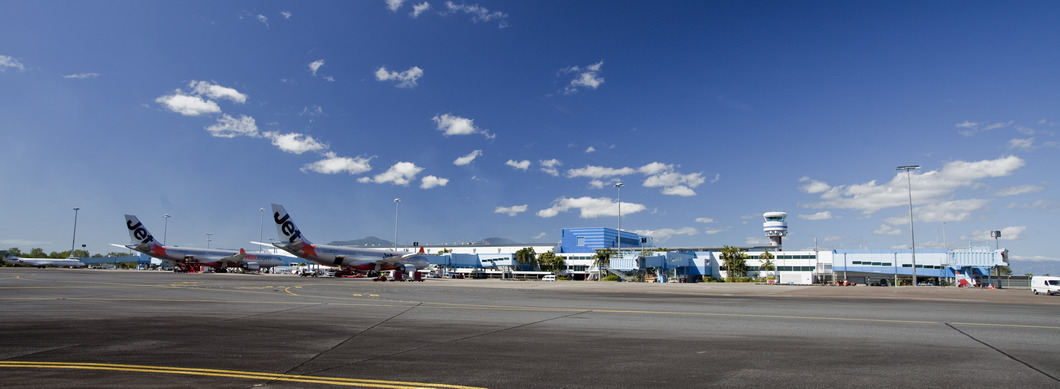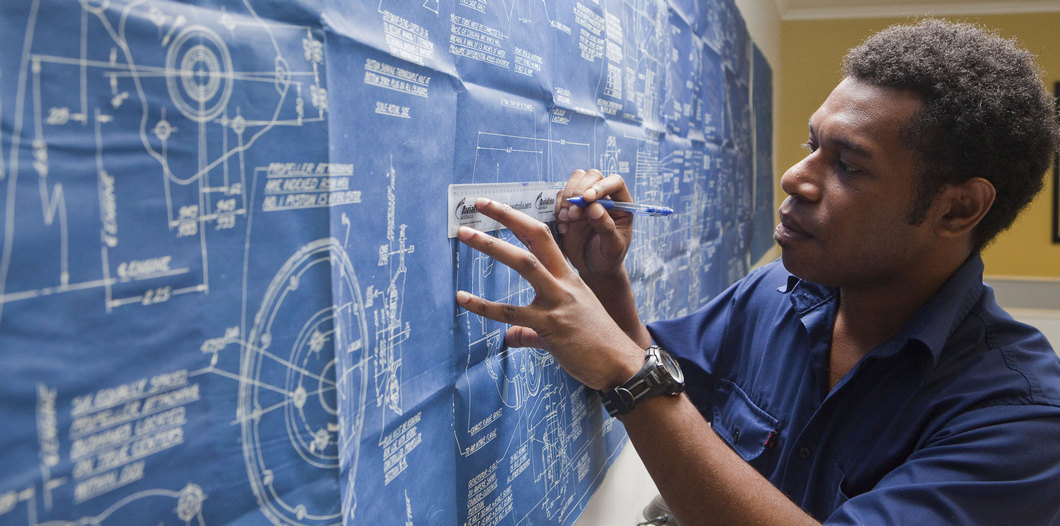Key industries in Cairns | Choose Cairns
Cairns is full of options and connections for people looking to invest or relocate a business.
Key industries in Cairns have been identified by the local Council by looking at contribution and significance to the local economy, alignment with State and Federal political priorities, jobs, and growth: historical and potential.
Cairns' seven key industries are:
- Aviation
- Marine
- Healthcare and Social Assistance
- Tourism
- Construction
- Education and Training
- Arts and Culture
A focus on developing a 'green economy' in Cairns is also important to the growth and development of the city.
Digital infrastructure and fast download speeds have helped many newcomers to Cairns to build and grow their online businesses. Cairns also has excellent air, rail, marine and road infrastructure for those considering manufacturing, import and export opportunities. Vital facilities, such as our air and sea ports, are located within minutes of the city.
Here is the lowdown on key industries in Cairns.
Healthcare, social assistance and the arts in Cairns
The Arts and Culture sector is thriving in Cairns with new investment in cultural infrastructure and a growing recognition of the city’s presence as a hub for artistic and cultural expression. Cairns has also attracted some of the world’s best performers and artists in recent years.
The sector employs over 1,680 people in Cairns and contributes over $100 million in added value to Cairns’ economy.
Cairns has a range of first-class venues including the Cairns Performing Arts Centre, Tanks Arts Centre, Munro Martin Parklands, Bulmba-ja Arts Centre, and Cairns Art Gallery.
Before COVID-19, Cairns welcomed almost 3 million visitors each year with a unique natural and cultural offer. The sector employs almost 10,000 people and has a turnover of over $2.1 billion (NIER 2020). Visitors can experience the world’s largest living structure (the Great Barrier Reef), hike through the world’s oldest rainforest (he Wet Tropics Rainforest), immerse themselves in the outback, and enjoy the richness of Indigenous culture.
International tourism activity has been majorly impacted around the world with Cairns no exception. According to the December 2020 Conus report however, intrastate expenditure is up 62%, so whilst the mix may have changed, tourism is still a vital part of our region.
Health Care & Social Assistance is a major sector for Cairns, employing over 12,000 people with a sector turnover over $1.4 billion (NIER 2019). It is supported by its education institutions. Study areas include medical and molecular sciences, tropical health, dentistry, psychology, gerontology, human movement, and sport science.
There is bipartisan support for Cairns Hospital to be upgraded to a University Hospital. Cairns is also home to innovative organisations such as the JCU affiliated Australian Institute of Tropical Health and Medicine (AITHM), which is Australia’s only dedicated tropical health and medicine research facility.
Here is the lowdown on key industries in Cairns.

Education, training, research and development in Cairns
Cairns has two-world class universities, James Cook University and CQUniversity, and excellent vocational education options such as Cairns Aviation Skills Centre, TAFE Queensland, and the Great Barrier Reef International Marine College. Our universities are reseach and development hubs, with specialist research centres and hubs for Tropical Health and Medicine, Innovation and technology, the Internet of Things, and anthropology.
Cairns is a destination of choice for international students from countries such as South Korea, Japan, Brazil, and Italy. There is also additional support provided through Study Cairns’ Student Hub in the centre of the city. Growth in this sector is propelled by the expertise of the training providers in fields such as aviation, marine services, hospitality, and health disciplines. The sector employs over 5,000 people and has a turnover of almost $700 million (NIER 2019).
The Centre for Tourism and Regional Opportunities has been established by CQU to undertake research across the fields of economics, tourism, human society, management, Indigenous issues, agriculture and food, and the environment.
The Centre for Indigenous Health Equity Research (CIHER) is a flagship for Indigenous health equity research in Northern Australia. Established by CQU CIHER conducts high‑impact applied research to ensure that Indigenous nations gain full and equal access to opportunities that enable them to lead healthy lives.
The Australian Tropical Herbarium (CNS) is a joint venture of the CSIRO, Australian and Queensland Governments and James Cook University. It boasts state of the art facilities and infrastructure for specimen processing and curation, photography, pest and climate control, and field, herbarium and laboratory research. Research at the Herbarium covers a range of topics including tropical plant and fungal taxonomy and evolution, ethnobotany, ecology, climate change studies, development of identification tools, and regional ecosystem mapping.
The Australian Institute of Tropical Health and Medicine (AITHM) is a flagship research institute of James Cook University based in the tropics of northern Australia. Australia’s only dedicated tropical health and medicine research institute, AITHM is focussed on solving problems of importance to the tropics, leading to improvements in health systems and healthcare delivery, improved biosecurity, and enhanced health outcomes for Australians and our neighbouring tropical nations. This strategic plan builds on our existing strengths in basic, translational, clinical, and health systems research to define our priorities and strategic goals for the next five years.
The Cairns Institute was established by James Cook University for advanced studies in sustainable industries, economies, people and societies in the tropics. Bringing together the expertise and intellectual resources of more than 20 disciplines in the humanities and social sciences, The Cairns Institute is a uniquely robust and vibrant hub of research, training and dialogue in the tropics, for the tropics.
The JCU Ideas Lab unites Optus’ next-generation narrow-band Internet of Things (NB-IoT) network and industry prowess with JCU’s expertise in IoT engineering and related disciplines. Activities and projects will be focused on advancing digital technology across a range of industries and training a workforce for a diversified and digitised northern Australian economy. Of note is their application to sectors such as agriculture, remote health, environmental management and protection, aquaculture and mining.

Technical, trades and transport in Cairns
The aviation and aviation training industry in Cairns is strong because of its strategic location and excellent infrastructure. There are internationally recognised names here such as Hawker Pacific, owned by Switzerland’s Jet Aviation, who are an official Bombardier service centre and have the largest avionics workshop in the southern hemisphere. Also in Cairns is UK owned Cobham Aviation Services. There are also Australian owned companies such as Skytek, an official Viking service centre, and Hevilift, a leading fixed and rotary wing service provider. Cairns Aviation Skills Centre and the CQUniversity Aviation Campus are both located at Cairns Airport, delivering vocational and Bachelor level qualifications.
Cairns has a significant marine precinct. Contained within it are the seapor, Marlin Marina, HMAS Cairns naval base and supporting industry, all within a concentrated footprint, providing unparalleled logistical advantages close to Cairns city centre. Four shipyards are also based in the marine precinct - BSE Maritime, Tropical Reef Shipyard and Norship Marine and Norship.
Cairns is home to one of the largest fishing fleets in the country and is the most visited port in Australia for superyachts. Cairns’ indicative annual seaport movements include 552,000 tonnes of export, and 754,000 tonnes of import (June 2019).
The skills and expertise required to support the marine services sector are met by the region’s very own Great Barrier Reef International Marine College.
The local construction industry has strengthened in recent years. This is expected to continue with significant public and private infrastructure projects, and support from established engineering and manufacturing capabilities. The sector employs over 9,000 people and has a turnover over almost $2.5 billion (NIER 2019). Building approvals in Cairns have risen considerably in the 2020-21 financial year.
The manufacturing sector in Cairns employs over 3,900 people and contributes over $450 million in added value to Cairns’ economy. Cairns also has a Regional Manufacturing Hub which provides a place for local manufacturing businesses to receive expert advice and support to develop advance manufacturing capabilities.

